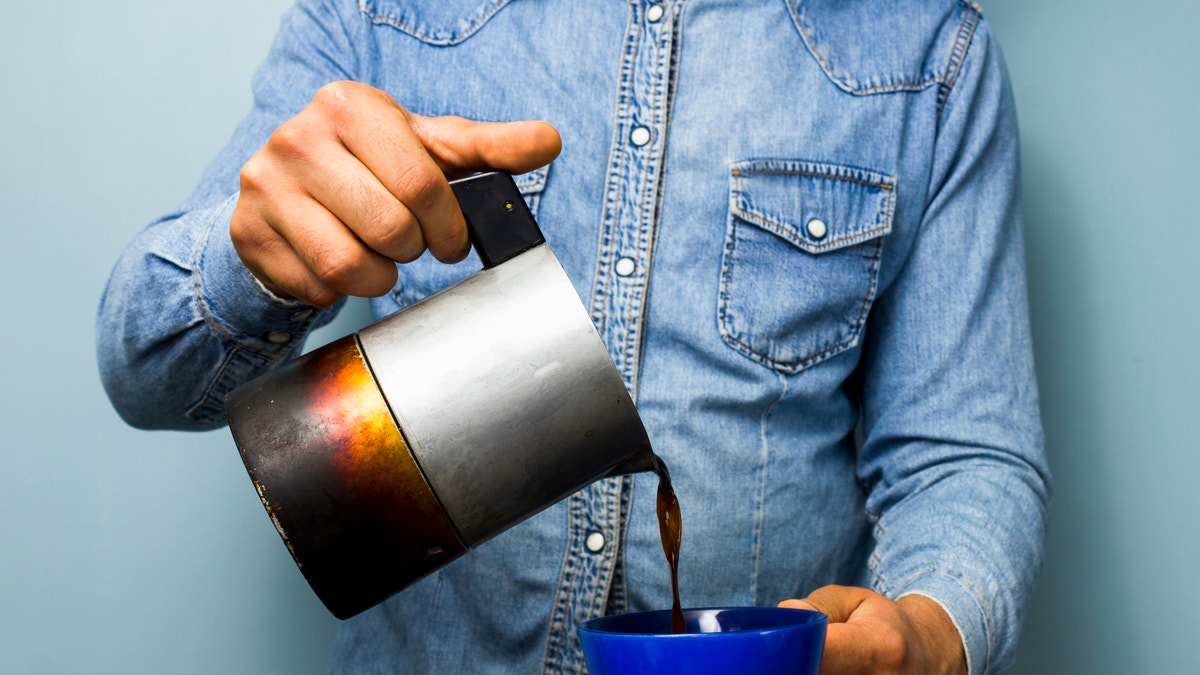
Worker pouring coffee from a traditional Italian moka pot (lofilolo)
Metabolism is the body’s process of converting food into energy to run its cellular processes. Energy is needed for both voluntary actions (like walking, running, biking, even eating and drinking) and involuntary actions (like breathing, blood circulation, and cell growth).
The amount of calories required for the involuntary processes in a body at rest is called the basal metabolic rate, and it accounts for around 70 percent of our daily caloric expenditures. The BMR varies for each person based on sex, age, genetics, and physical stature; people with more muscle or larger builds typically require a higher BMR to maintain a healthy weight. The remaining 30 percent of calories are burned through the thermic effect of food, which involves not only our obvious physical activities but also the process or digesting, absorbing, and transporting food through the body.
In order to boost our metabolism, we need “active foods” like fiber-rich whole grains, and lean proteins — things that will cause your body to expend more energy to process and store the calories through a process known as dietary-induced thermogenesis. Many dieters believe that dropping their caloric intake is the key to weight loss, but the body is highly adaptable; the body will actually slow down its metabolic rate to compensate for a decrease in calories. Therefore, in order to lose weight, you need to consume foods that require more energy to process.
Brown Rice
The body needs to expend more energy to break down a fiber-rich food like brown rice than it does a refined carbohydrate like white bread. Brown rice contains both insoluble fiber, which moves material through the digestive track, and soluble fiber, which slows down the absorption of carbohydrates.
Coffee
Drinking coffee can help you lose weight. A study showed that after drinking fully caffeinated coffee, both people who were obese and people who were an average weight experience an increase in metabolic rate. Unfortunately, our bodies can develop a tolerance to the metabolism-boosting effects of caffeine, so the long-term weight loss capabilities of coffee are still questionable.
Energy Drinks
Energy drinks are by no means a healthy beverage, They’re loaded with sugar — but their content of caffeine and taurine (an acid essential for cardiovascular health and muscle development) can help speed up metabolism and melt away fat. Studies show that after caffeine consumption, subjects’ metabolic rate increased by between 3 and 11 percent. However, similar to coffee, the metabolism-boosting effects diminish if you develop a tolerance to caffeine.
Ginger
Ginger can reduce LDL cholesterol levels and act as an anti-inflammatory, but it can also help boost metabolism. A study found that overweight men burned more calories through dietary-induced thermogenesis (the body’s process of heat production) when they drank a glass of ginger tea with breakfast.
Click here for the Ramp Up Your Metabolism With These 6 Foods and Beverages Slideshow
